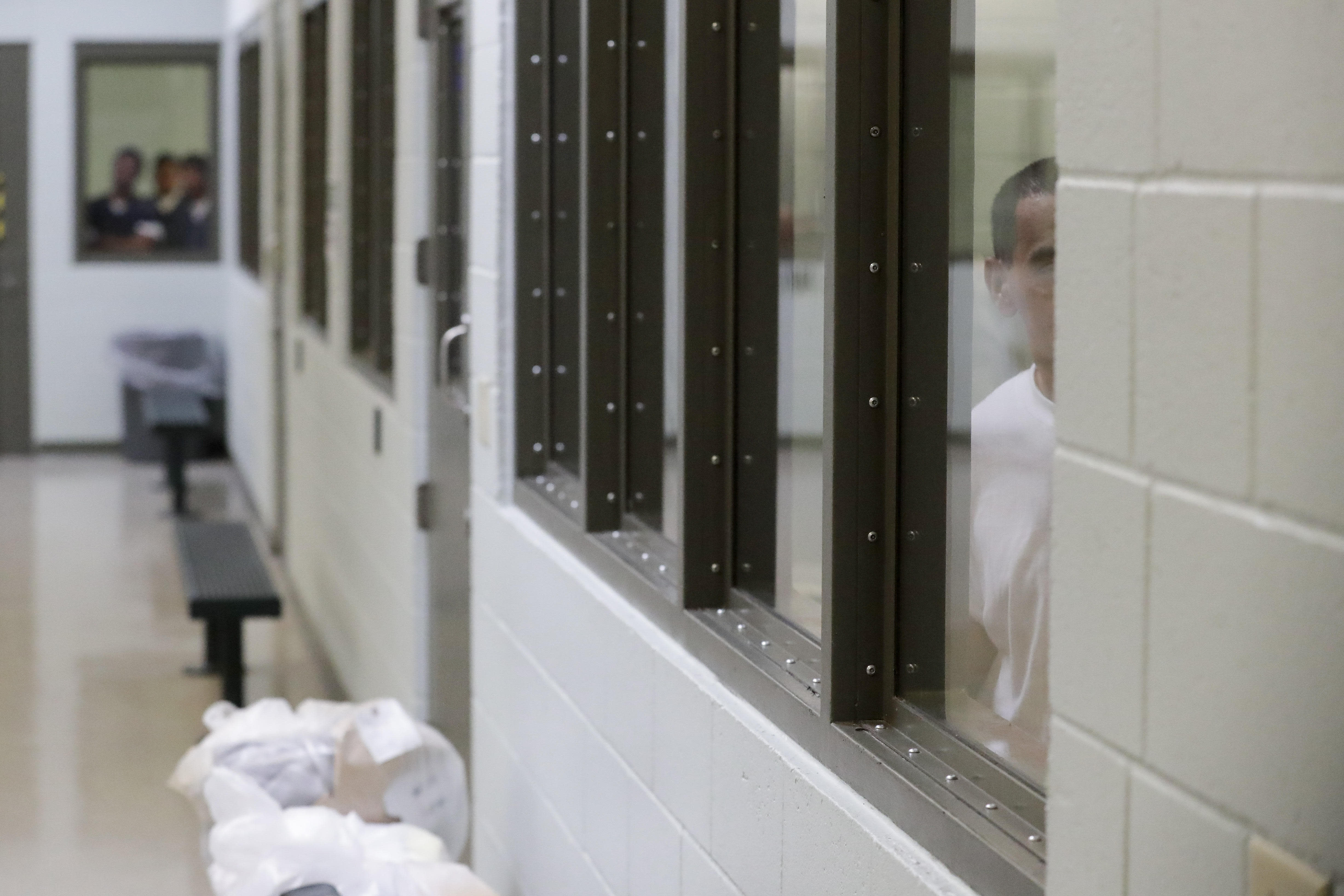Immigrant in ICE custody dies after testing positive for COVID-19
Camilo Montoya-Galvez,CBS News•May 7, 2020

An immigrant detained by U.S. Immigration and Customs Enforcement (ICE) in southern California died on Wednesday from coronavirus complications, local health authorities said, confirming the first known death of a detainee in the agency's custody during the pandemic.
The 57-year-old immigrant died Wednesday morning in a San Diego-area hospital after being transferred in April from the privately operated Otay Mesa detention center, the epicenter of coronavirus cases inside the nation's immigration detention system, according to Craig Sturak, a spokesperson for the County of San Diego Health & Human Services Agency.
The man was identified as Carlos Ernesto Escobar Mejía by his immigration attorney for nine years, Joan Del Valle. He had lived in the U.S. since the 1980s, including 20 years in Los Angeles, according to Del Valle.
Escobar Mejía had been transferred to the Otay Mesa detention center after being picked up by ICE in January during the arrest of someone he was in a car with, Del Valle said. She stopped representing him after after he was transferred to the detention facility in the San Diego-area, since she's based in Los Angeles. Del Valle said Wednesday night that Escobar Mejía's family in the U.S. was too distraught to discuss his death publicly and authorized her to speak on their behalf.
Del Valle said her longtime client, who had undergone surgeries and suffered from diabetes, was denied bond on April 15 by an immigration judge. "On April 15, he had the opportunity to have many more years of life. On April 15, when they denied him every possibility to be released in the middle of a pandemic, knowing how frail he was, they sentenced him to die," Del Valle told CBS News.
According to Del Valle, Escobar Mejía struggled with alcohol and drug abuse earlier in his life, saying he had some substance convictions that date back roughly three decades. A drug-related charge in 2012 was expunged the following year, she added. For the past years, however, Escobar Mejía had turned his life around, Del Valle said.
"Having a record, it depends on you if you want to change your life — and he did. I want people to focus on Carlos, a good person who was fighting an addiction and bad influences and he was successful. Staying nine years clean after being so deep in using drugs is a big advancement," Del Valle said. "He was a good person."
"He was a person who loved his family. He loved life. Who wanted to improve, make things right. I will never forget his voice, his joy, his smile, his desire to press forward," she added.
At least 132 ICE detainees at the San Diego-area prison have tested positive for coronavirus, the most of any detention center used by the agency to hold immigrants it is looking to deport. Across the nation, at least 705 immigrants in ICE custody have tested positive for the coronavirus, according to the agency, which reported 31 new cases on Wednesday. More than 48% of the 1,460 detainees who have been screened for the virus have tested positive.
Cases inside the agency's sprawling network of county jails and private prisons have been growing substantially on a consistent basis, with the agency reporting 581 cases in the past three weeks alone. Many of the more than 29,000 immigrants held by ICE have been growing increasingly frustrated, and have said they feel powerless to shield themselves from the contagion while in close quarters.
There have been at least nine instances since President Trump declared a national emergency over coronavirus in March in which protesting ICE detainees have been pepper sprayed. ICE has said the immigrants became confrontational and disruptive, and maintained that the "calculated use of force" mitigates the risk of injuries to both staff and detainees.
Since the pandemic started spreading across the U.S., immigrant advocates and human rights groups have been pressuring ICE to dramatically downsize its detainee population to mitigate the risk of widespread outbreaks.
ICE has so far released more than 900 immigrants who it determined face an increased risk of severe illness if they contract the coronavirus due to their age, underlying health conditions or the fact that they are pregnant. Granting requests in lawsuits filed by advocates across the country, federal judges have also required the agency to release more than 190 at-risk detainees.
But advocates believe the agency has not done enough to protect detainees. Anne Rios, a supervising attorney at Al Otro Lado, a group that has been working to release dozens of detainees from the Otay Mesa detention center, said she is worried about other immigrants dying while in custody.
"This was 100% avoidable. Immigration detention is civil detention — it is discretionary. ICE could've determined that this person who had underlying conditions could and should've been released," she told CBS News. "They had the discretion to do so and yet they chose not to."
ICE officials did not immediately respond to requests to comment on Wednesday's death.



 John Locher/AP
John Locher/AP












